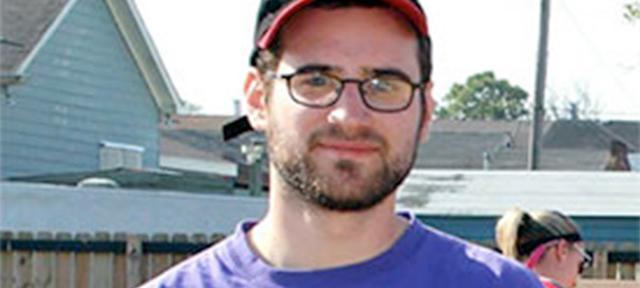New Orleans Experiences Influence Disaster Policy Studies

Sal Migliaccio’s involvement with Hampshire’s alternative spring break was a quick introduction to the civic engagement opportunities available at Hampshire College.
“In high school, I was able to go to New Orleans to get involved with disaster relief (in the aftermath of Hurricane Katrina),” he says. “At Hampshire, I started planning a trip, and found there already was a program here.”
That alternative spring break program, run through the Spiritual Life office, has been influential in shaping Migliaccio’s studies. He arrived at Hampshire intending to study the social sciences, but his experiences in New Orleans assisting with a variety of community outreach organizations led him to concentrate on other areas.
“After my second time in New Orleans, it dawned on me that my focus could be on the issues I’ve encountered there. I decided to incorporate policy, specifically disaster policy, into my study of politics,” he said.
For his Division III work, Migliaccio has delved into the impact of changes in the structure of the Federal Emergency Management Agency (FEMA) and other disaster response agencies. His Division III Committee includes Professor of Politics and Environmental Studies Bob Rakoff, Writing Center co-director Will Ryan, and Smith College Professor of Government Marc Lendler.
"My work addresses the roles of civil defense and national security issues, with a focus on how FEMA changed based on what was happening in the world,” he says. “For instance, after 9/11 there was a shift, with FEMA becoming part of an anti-terrorist organization. So when Hurricane Katrina struck, FEMA wasn’t prepared.”
Migliaccio is now a leader of the alternative spring break program, and he says he’s formed numerous good friendships through the bonding that takes place throughout the week (and especially during the drive from Amherst to New Orleans). After graduation, Migliaccio will be working with AmeriCares, a global disaster response nonprofit he began interning with last year in his hometown of Stamford.
“I chose Hampshire for a number of factors,” he says. “It was affordable because of good financial aid. I hadn’t anticipated being able to go to a private school, but Hampshire ended up being cheaper than the University of Connecticut. And I felt I needed to shake things up with my education. It’s definitely paid off. I’m happy with the things I’ve learned in school, and the things I’ve been involved with outside of school.”
He encourages new students to take advantage of all that’s available at Hampshire, because it’s hard to tell what will prove influential.
“You really get out of Hampshire what you put in, in terms of effort. The model is made so that you can be flexible. And you get quite a lot of support. There are a ton of programs at Hampshire with really great resources. If you look for them, you can find them.”
Director of Spiritual Life Liza Neal, who calls Migliaccio “a great mentor to other students,” agrees.
“There are so many opportunities to get involved with community work, whether on campus or in the local community or through programs like alternative spring break,” she says. “I actually don’t know of any office on campus that isn’t doing civic engagement. All students need to do is walk in and ask what’s available.”



